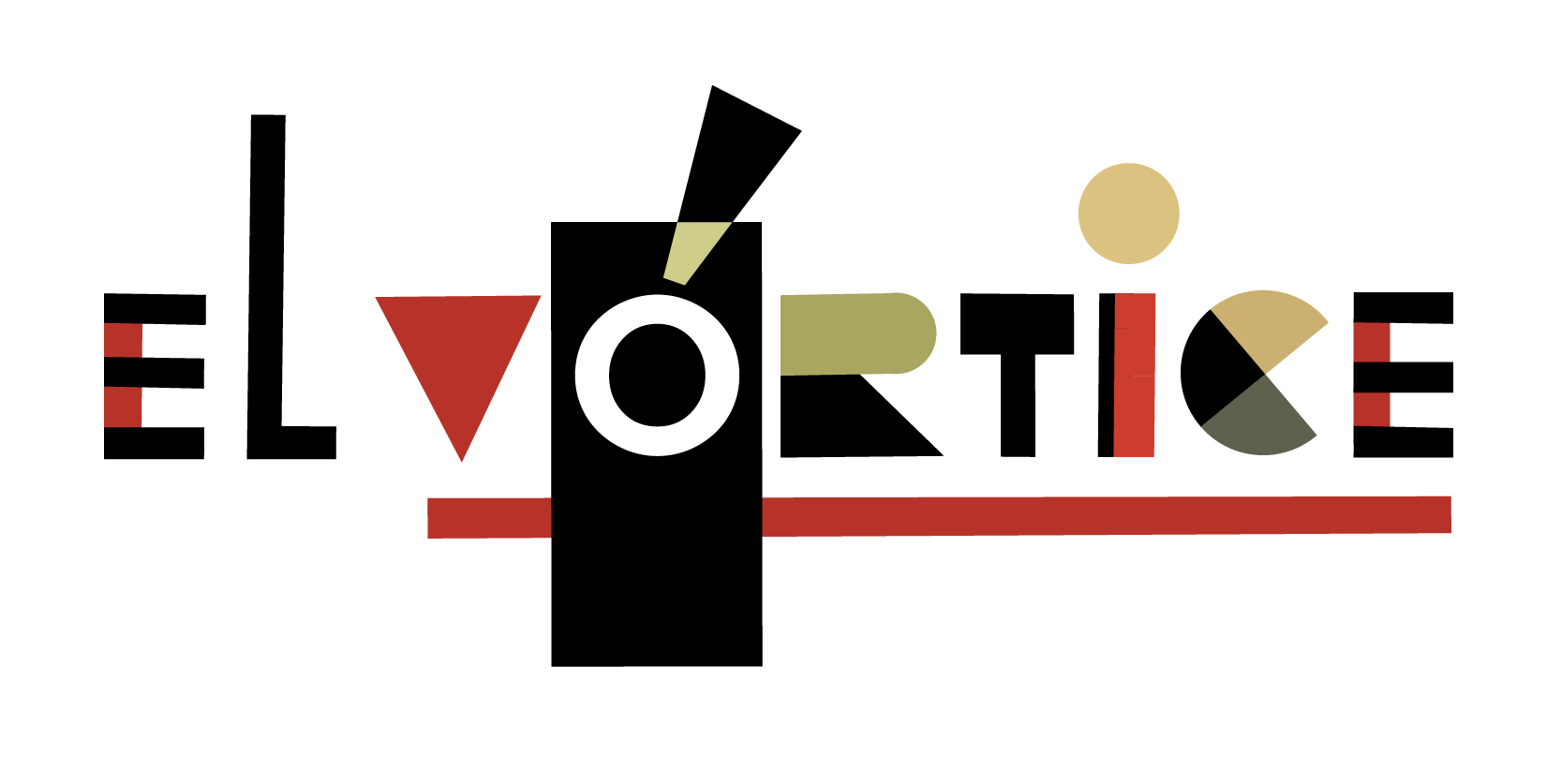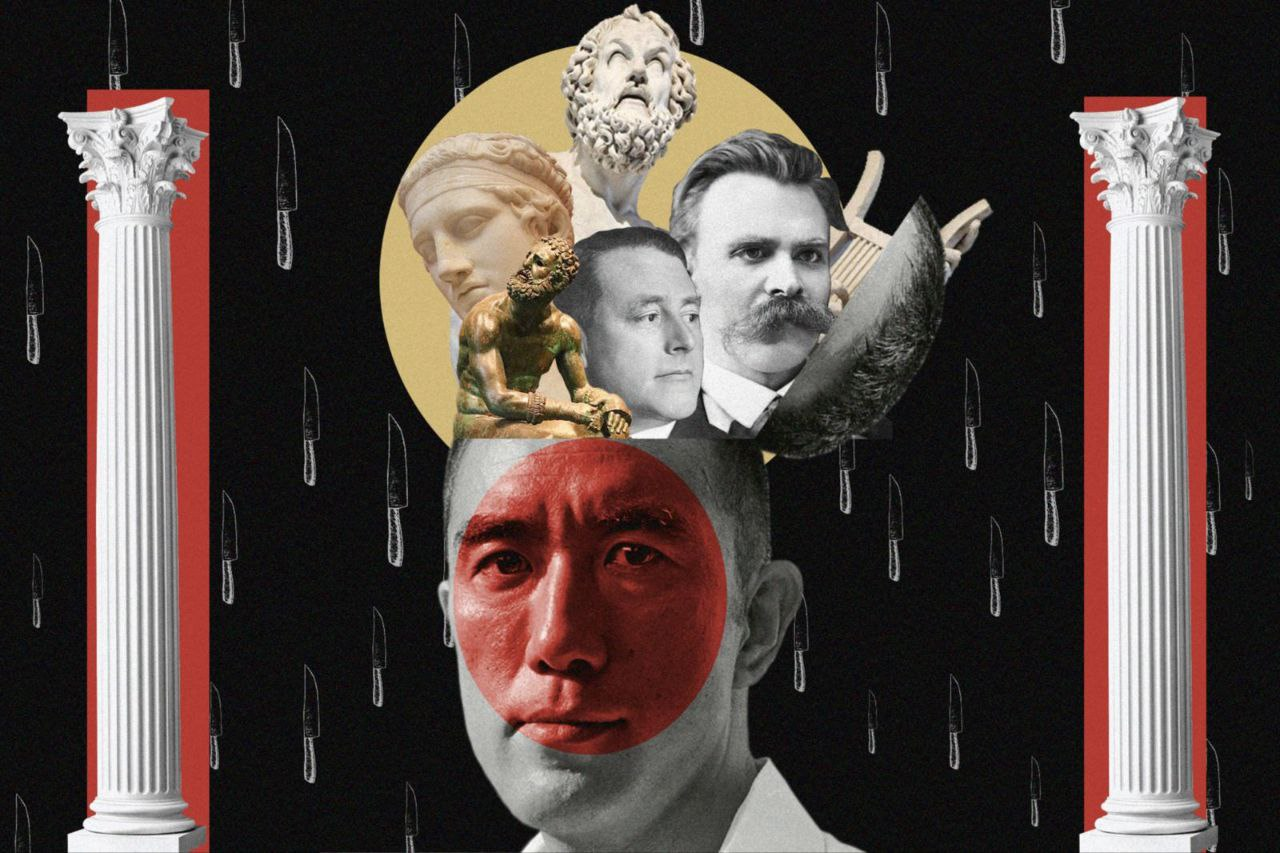“No power can be wielded by those who cannot see it within.” This reflection came to me while I read Mishima’s Sun and Steel. As I muttered these words, it felt like I started to deeply reflect through my muscles. More precisely, I started to reflect on what was lacking in them. In that void, that dead space where what should be there wasn’t, an idea came to me, piercing through layers of flesh petals. Beneath them, a momentum not yet exploited was burning its gears, spinning on itself, lusting over its energy and consequent attrition of the self.
I came to grasp more steadily this force once I wielded it against my possibilities. So I tore these possibilities apart into an explosive novelty, a dominion that my previous “I” couldn’t have ever reached in its current state. As my previous “I” died, and the new one arose, I could see them as parallel mirages of a mirror of flesh that found itself in all things that made it stronger, more defined, more savage, more imperative. The flesh submitted to the form, molded into whatever the will commanded. The flesh—soon enough—became the form of the will. At that moment, the idea reconnected with me.
That idea was of the sovereignty of the form and its relationship to competitiveness, as a sculpting of a universal framework for power.
I
From my readings, I concluded that Mishima’s work cannot be fully understood without engaging in physical force.
To be physical—that is, to wield the steel—allows testing the horizons of the body. When one gets there, I noticed, horizons stop being what they seem, and turn out to be thresholds, not of the body, but of the soul; a portal that takes the effort into a new stadium of existence. Be it with the steel, be it in combat, these horizons are interpreted as an overwhelming feeling of “no-furtherness,” of having arrived at the edge of the body.
Physical force, however, cannot be understood without the notion of overcoming its boundaries.
These three elements—force, boundaries, and death—are also fundamental to power. And power, as we know, is the overcoming of boundaries and the logical expansion of the winning force. To overcome such resistance is to dictate over it, to decide the fate of that or those surpassed. Schmitt called this “[to dictate] the exception.” Cordiality, normalcy, and concord are rather ideals (or contingent illusions of peace). They are, de facto, the peaceful sleep of an unchallenged power.
Now, when this power is truly challenged, two possible outcomes arise: either this power dies out and is replaced by another one stronger, or it’s perfected like a blade that becomes sharper through the elimination of all imperfections and dullness.
Mishima wanted absolute dominion of the self, by overflowing the shell he considered his limits to be with explosive manifestations of the will he called “actions.”
Very much akin to action, will, and force, death surges as a symbiotic ingredient of the writer’s concept of power.
Death was not only seen by Mishima as the definitive threshold to overcome. Death was deemed by him as a supreme decision against what many called “fate”—the unbeatable becoming of decay.
For instance, in his last interview before the coup attempt, Mishima told his literary rival, Takashi Furubayashi: “In my opinion, living without doing anything, aging slowly, is an agony, it is tearing your own body apart. All this has led me to think that, as an artist, I must make a decision.” Decay was dramatically worse than death for the warrior-poet, and so he sought to crush the—apparent—law of progressive and veiled decomposition of the self, with manifest action. The use of the word “decision” particularly drew my attention, for its root is decidĕre, which means “to cut.”
Mishima saw decay as an unmovable, eternal custom; our epoch’s nomos. Furthermore, he perceived this nomos only offered hostility both to sun and steel, since these were the sources of his power. Death—dramatic, painful, yet masterful death—, Mishima reflected, cut modernity’s fat-filled belly and turned it into a bloody, lordly elixir.
By reclaiming death with nobility, Mishima overthrew the modern notion of life that confuses senility with ripeness, civility with virtue, cleanliness with purity, and violence with vulgarity.
II
“Your obligation is to the action, and never to its fruits.” —Bhagavad Gita, 2:47.
Throughout these reflections, I have been speaking in terms of contrast, bouncing back and forth between ones and zeros, blacks and whites. Far from being Manichaean, it’s based on what Mishima deemed essential for the building of power: rejection, distinction, antithesis.
Combat, for instance, is in close relationship with these elements.
Combat is, in essence, a clash of actions trying to manifest themselves in the voids they sense with precise explosions of force. In combat, power seeks to occupy these voids. An attack can only fill the void of the adversary with as much accuracy as his mind and muscle can provide. Thus, victory in combat is found in the dominion of the void. So, it is not just force but the form of the force that dictates the triumph.
It is in combat where sovereignty arises as the supreme form. To reign over “the void” through its occupation is to master destruction in a sovereign form.
“The destruction of what?” you may ask.
When one overcomes resistance, one ceases to exist in a form. The flow of existence in which our life was flowing ceases to be so it can become. In that becoming, nothing matters but that which causes the destruction, the expansion of power as it pushes the world into the will-drawn doom. The self dies in the expansion of the triumphant power and grows out of its destruction blooming even more, sharper. What for? To further the supreme action; now with greater vigor, sharpness, and strength.
Power, thus, needs death to expand; and to expand, power needs antithesis. And we can find the best manifestation of high antithesis in Archaic Greece’s culture of competition.
III
Agón (ἀγών) and aretê (ἀρετή) were the two pillars through which ancient man met nobility. Without agón—without struggle—the classic man cannot demonstrate his aretê, which is another way to say that man’s excellence needs to be proven. That’s why contests were a core activity of the polis. Nietzsche confirms this idea in Homer’s Contest: “For the ancients, the aim of agonistic education was the well-being of the whole, of state society.”
“From childhood, every Greek felt the burning desire within him to be an instrument of bringing salvation to his city in the contest between cities: in this, his selfishness was lit, as well as curbed and restricted. For that reason, the individuals in antiquity were freer, because their aims were nearer and easier to achieve.”
Friedrich Nietzsche, Homer’s Contest
This sense of imminence brewed a sense of duty to prepare and aroused the spirit toward excellence. A holy specter of insatiable urge for victory possessed the agonists. The individual who displayed this spiritedness did so also in devotion to his adversary’s opposition. They were both part of a supreme detonation of all vital forces concentrated within them; vessels of a city’s spirit.
Their degree of lust towards excellence spoke too of the character of the city and, therefore, its fate. Nietzsche explains: “The youth thought of the well-being of his native city when he sang or threw or ran in contests; he wished to increase the city’s share of glory by increasing his own glory.”
Mastery of the form—the style through which the individual’s force sought sovereignty—meant mastery of the city’s powers—as well as mastery over the other cities. Beauty, thus, was tightly tied with victory: a triumphant champion was a beautiful champion, and his, was a beautiful polis.
One can say that there is a symbiotic relationship between athleticism, the capacity for struggle, and a nation’s might. A nation that can breed champions is one that embraces struggle and destruction as parts of a path toward supremacy.
To breed champions is, in its way, to create a style, a sense of beauty that is proper to a people. With a particular sense of beauty, struggle is elevated to a holy clash of sovereign forms: technique becomes spirit; conflict—be it contest or war—becomes heaven. A nation can only push forward through creative destruction and forging competition. Otherwise—if a nation isn’t inclined towards struggle—, it has closed its eyes and soul to beauty and glory. Only ugliness awaits.
IV
The beauty of a champion is rooted in the desire for the absolute; a consecration of Eros.
Before struggle, the building of one’s body is the constant push towards the synchronicity of bodily and spiritual highness. To strengthen the body is to transfer spiritual vigor, seeking the unity of the two. When the body attains a new horizon of strength, it overflows the spirit of plenitude. The Absolute flourishes in this moment.
In struggle, on the other hand, the desire for glory and triumphant might become as equally intense as the danger of defeat and doom. In that frontier, ever-growing violence—and an ever-deepening abyss—become the only cosmic law: athletes force their way over the edge of destruction, leaving sanity and flesh in the way, towards the point of the blade of beauty. Opposites will clash and meet their antithesis with as much or more violence, spirit, and genius. The one will step up, and the other will step even further, mimicking—and in doing so, creating—an eternal fulfillment of the Absolute. Dialectics take over the wills and veer them into a centripetal dynamic in crescendo. One’s will can no longer step back—only forward and through.
To declare one’s loyalty to the moment of struggle is not stubbornness: to be devoted to contest, conflict, and war is an absolute virtue; for the individual, his people, and city all gain power through it, as Nietzsche put it earlier.
This vision is diametrically different from later forms of patriotism, which dissolve the vital relationship between nation, soil, flesh, and blood.
V
This is the case of the decadent spirit of Venezuela.
We have forgotten all that’s given us the position we once held: the flesh that wielded the Steel, and the land we once conquered from the depths of the eternal Caribbean to the highlands of Andean savagery, all under one single Sun.
My people drown in the unattacked void, in the uncontested force, under the shadow of obeyed limits.
The culture of the form, the idolatry of the sun, the obsession for steel—we have relinquished them all.
The nation stopped being considered an extension of the people, their bodies, their blood, and their spirit. Instead, it was watered down to a moral canvas, painted with egalitarian tones. The soil and the flesh stopped being the guide. Words took their place, eating away the muscle of the nation.
In this Vestibule of Hell, one hears the scream of some blobs of bodies crying out for democracy, screams asking the avernal sight for solutions. And as these bodies smash their heads against the walls and each other, they equally fall into more horrid depths.
***
As I stand at an undisclosed coast of the South Atlantic, watching sun and sea merge into El Dorado, the mist of swift waves drizzles their power over my body. Unknown entities that have been awakened, wrap my existence with a claim for acts now forbidden by those of ugly souls and wretched form.
A truth is now revealed.
Nothing but a singularity of blood, flesh, spirit, and soil could make such conquests possible, and nothing but that can grant us ascent once more.

